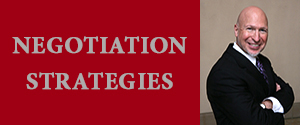

THE BACKGROUND
Recently, talks have been convened in Geneva towards negotiating a workable agreement between the Assad regime in Syria and the opposition. According to Al-Monitor, a daily news publication out of Lebanon, claiming to monitor the pulse of the Middle East: "UN and Arab special envoy, Lakhdar Brahimi does not seem very optimistic. Even though he keeps trying, he considers his chance of success to be no more than 10%".
I believe that Brahimi is being overly optimistic in estimating the chances of success at 10%. I would give it a 0% at this point because there is crucial and rigorous pre-negotiation groundwork that is necessary before serious negotiations can begin, and which will obstruct any productive movement as long as it is being neglected.
I believe that Brahimi is being overly optimistic in estimating the chances of success at 10%. I would give it a 0% at this point because there is crucial and rigorous pre-negotiation groundwork that is necessary before serious negotiations can begin, and which will obstruct any productive movement as long as it is being neglected.





